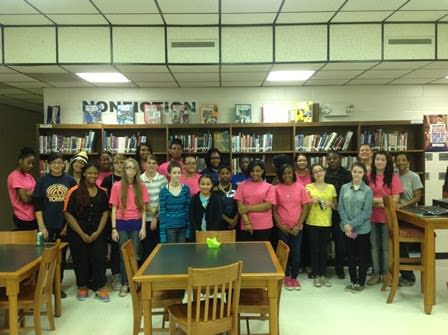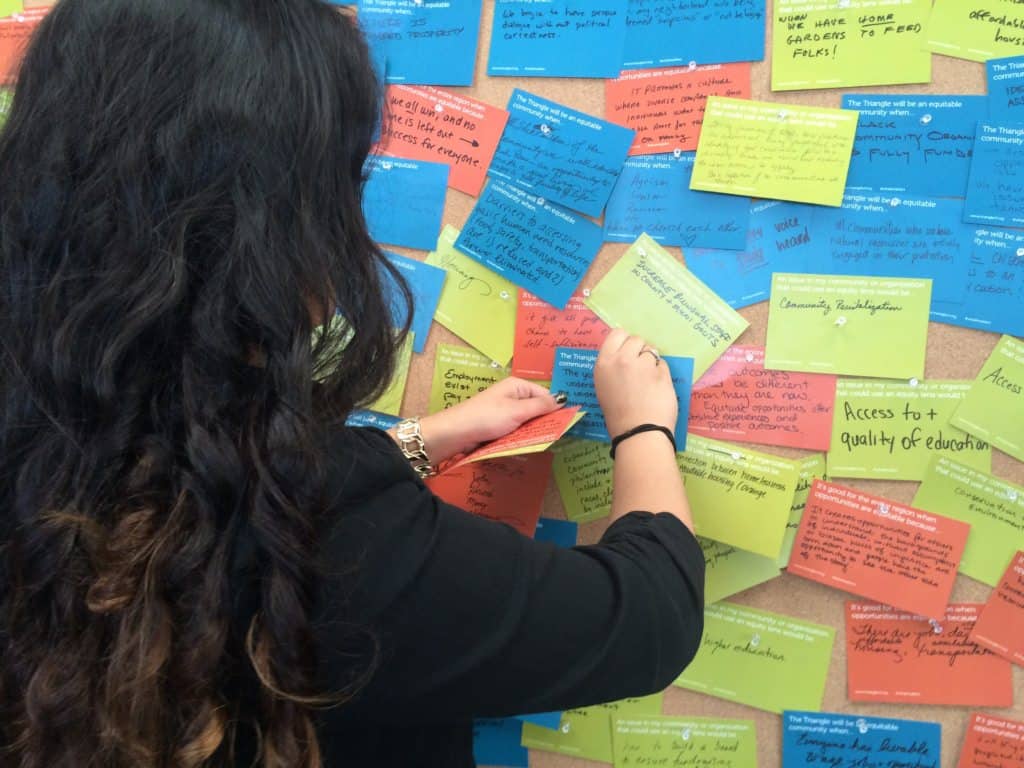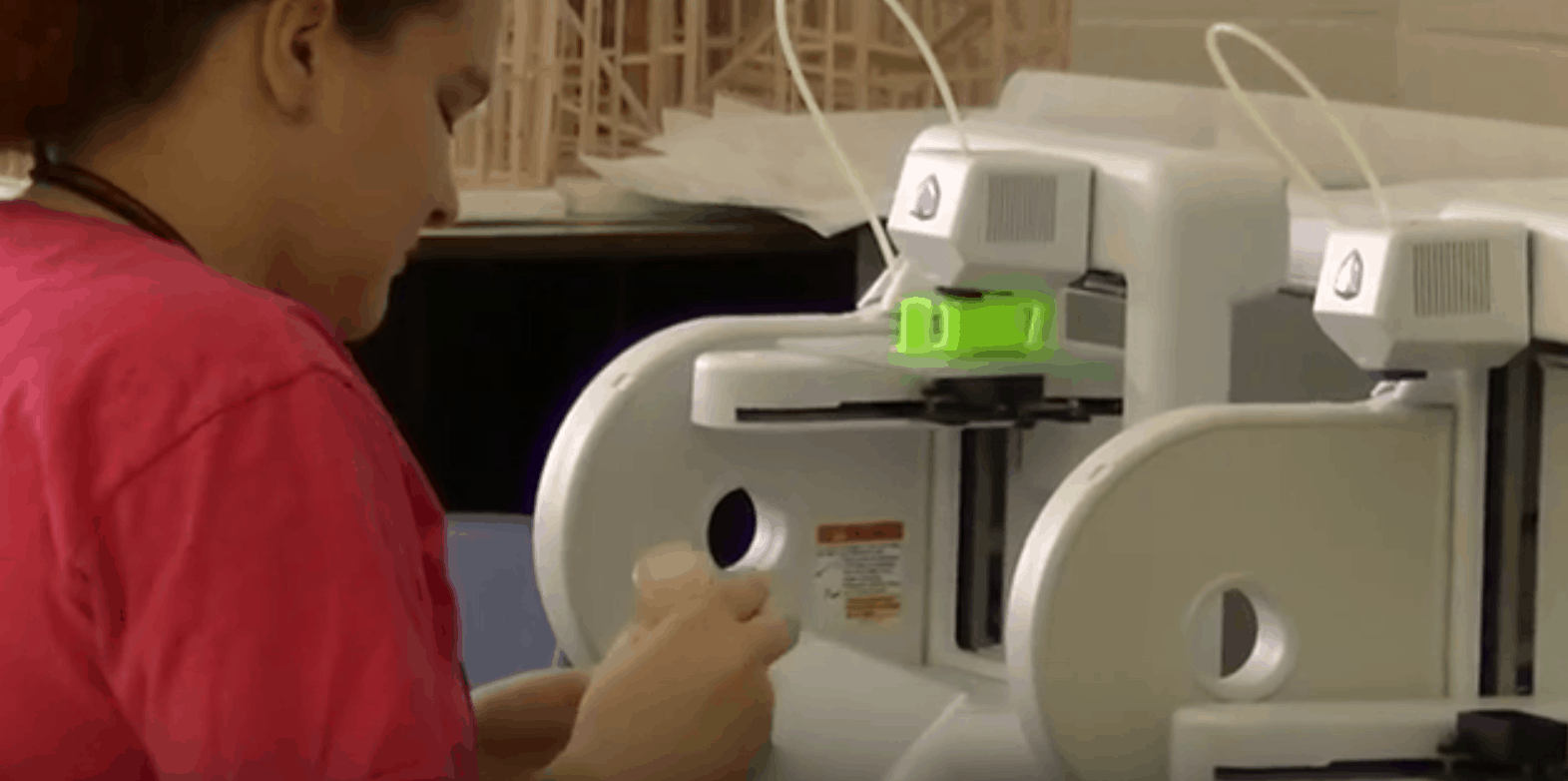Statistically girls perform better than boys in school. Research shows female students are more likely to make better grades and attend college than their male counterparts. But post-graduation males earn higher wages and take on more management roles.
Stereotypes and gender inequity at a young age can have a lasting effect on student opportunity.
How do educators help move students from a statistic to a future-ready member of society? Gender equity in the classroom.
Equity
Equity can be a hot-button topic in the education sphere. Teachers are challenged with creating inclusive, engaging environments where all students can thrive. They’re expected to provide experiences that will inspire students, both male and female, to think ahead and enter the career paths of their choice.
North Carolina’s State Plan to Ensure Equitable Access to Excellent Educators, a state educator equity plan required by the U.S. Department of Education, outlines “steps the State education agency will take to ensure that poor and minority children are not taught at higher rates than other children by inexperienced, unqualified, or out-of-field teachers.” State policymakers are working to eliminate barriers to high-quality teachers with a focus on teacher training.
Addressing stereotypes
Cumberland County Schools (CCS) is addressing equity through reinvigorated professional development. “We want to provide something that goes beyond cultural awareness and diversity,” said Jovan Jones, Professional Development Facilitator, CCS. “We’re providing a complete equity training.”
Jones said implicit bias and stereotypes play into student experiences and perceptions. She said there is gender inequality with how teachers may treat girls in STEM programs or boys in other programs.
“A lot of it is our mindset. We have to admit that we have biases and that we can do something about it,” said Jones.
Educational Leadership, a monthly publication by ASCD, highlighted the importance of addressing stereotypes and implicit bias in its recent Disrupting Inequity edition. “No one is immune from stereotype threat,” said authors David Sadker and Melissa Koch. “Each of us holds an image of some group (gender, racial, ethnic, religious, economic class, and so on) that we believe has knowledge or ability superior to ours.”
Providing opportunities
Breaking the stereotype is Yolanda Epps, a former assistant principal at Douglas Byrd in Fayetteville. Epps started a STEM program for girls at Douglas Byrd out of the need for equal access to fields of study for students typically underrepresented in STEM-related areas. The program is called 3D-GREES — 3D Girls Really Enjoy Engineering and Science — and you can follow it on Twitter @3D_GREES1.

“The typical classroom will shy away from girls being engaged in the building of things, science, or technology,” said Epps. “This prompted me to create a club to expose girls to these skills and to provide a platform for such exposure outside of the school day.”
One weekend a month, 3DGREES meets to explore different career fields where STEM skill sets are utilized. “Female mentors, speakers, and others in STEM fields are great advocates to show our girls that their participation in STEM fields is just as valuable as male participation,” said Epps.
Shareen ElNaga, a senior at Enloe High School in Wake County, is also pioneering an effort to better support girls in schools. ElNaga started Girl Talk NC, a mentoring program for female students to help decrease the dropout rate.
“I heard a statistic that 62 million girls around the world don’t have access to education,” she said. “So I asked myself what I could do to change the statistic and help students I knew.”

Girl Talk NC provides a space for girls to talk about stress, mental health, relationships, and other topics beyond academics. “Being a female student can be hard,” said ElNaga. “We are allowing girls to talk openly…it’s a free discussion.” ElNaga said the group looks to each other’s stories to grow, inspire, and build meaningful relationships.
Another aspect of gender equity is working with LGBTQ youth, ensuring teachers understand how to create inclusive environments so students don’t feel marginalized. Safe Schools NC, a statewide nonprofit dedicated to creating safe and positive learning environments, recently hosted a conference entitled “Educate with Pride!” Educators from across North Carolina gathered to discuss the unique needs of LGBTQ students and parents, and how to address those needs with sufficient knowledge and skill base.
What now?
Gender equity in the classroom is not something that can be achieved overnight. It takes time, diligence and action, but many educators say the opportunities it offers students are well worth the effort. We all need the basics to survive — from food and water to shelter and heat. What differs, however, are the unique opportunities and learning experiences educators can provide so that all students thrive.

